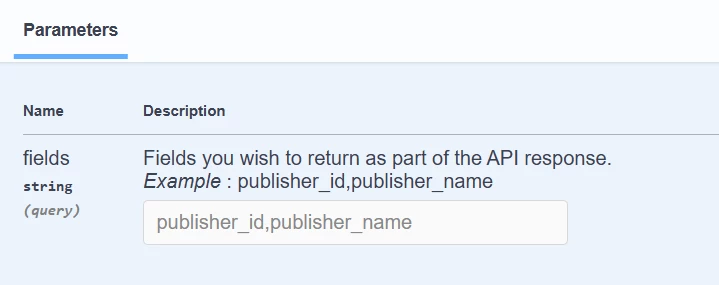When running a query against “/api/v2/infrastructure/publishers” the list of to be returned fields can be attached.
However it seems that only fields from the first level of the JSON can be selected.
Does anyone know, if other fields e.g. assessment[latency], can be referenced in the field-list as well? And how?
Thanks Timo








